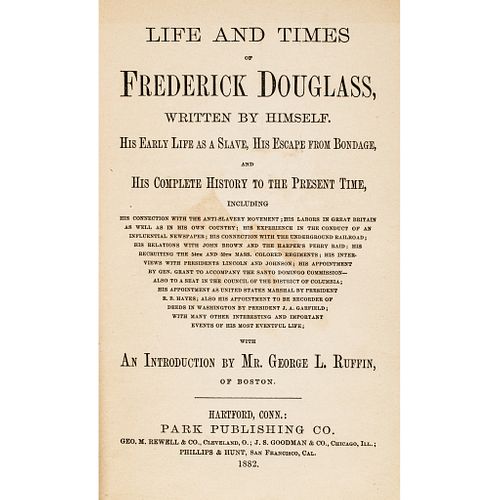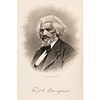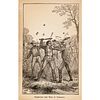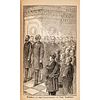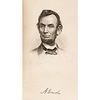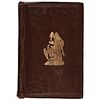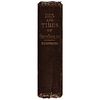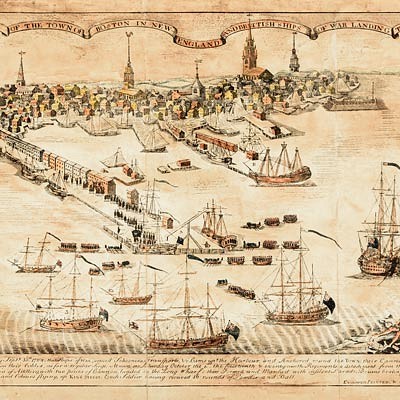1882 Book, The Life and Times of Frederick Douglass - Abolitionist Autobiography
Lot 248
Categories
Estimate:
$400 - $600
Absentee vs Live bid
Two ways to bid:
- Leave a max absentee bid and the platform will bid on your behalf up to your maximum bid during the live auction.
- Bid live during the auction and your bids will be submitted real-time to the auctioneer.
Bid Increments
| Price | Bid Increment |
|---|---|
| $0 | $10 |
| $200 | $20 |
| $300 | $25 |
| $500 | $50 |
| $1,000 | $100 |
| $2,000 | $200 |
| $3,000 | $250 |
| $5,000 | $500 |
| $10,000 | $1,000 |
| $20,000 | $2,000 |
| $30,000 | $2,500 |
| $50,000 | $5,000 |
| $100,000 | $10,000 |
| $200,000 | $20,000 |
| $300,000 | $25,000 |
| $500,000 | $50,000 |
About Auction
By Early American History Auctions
Mar 20, 2021
Set Reminder
2021-03-20 12:00:00
2021-03-20 12:00:00
America/New_York
Bidsquare
Bidsquare : Autographs-Colonial-Political-Americana
https://www.bidsquare.com/auctions/early-american-history-auctions/autographs-colonial-political-americana-6509
330 Lots of Rare, Historic Autographs, Americana, Civil War Era, George Washington, Abraham Lincoln, Slavery & Black History, Revolutionary War Era, Colonial America, Federal Period, War of 1812, Colonial Currency, Indian Peace Medals & more... Early American History Auctions auctions@earlyamerican.com
330 Lots of Rare, Historic Autographs, Americana, Civil War Era, George Washington, Abraham Lincoln, Slavery & Black History, Revolutionary War Era, Colonial America, Federal Period, War of 1812, Colonial Currency, Indian Peace Medals & more... Early American History Auctions auctions@earlyamerican.com
- Lot Description
Black History
1882 "The Life and Times of Frederick Douglass"
Abolitionist Frederick Douglass Re-Issue
1882 Former Slave, Abolitionist Frederick Douglass' third and final updated Autobiography titled, "The Life and Times of Frederick Douglass." printed by Park Publishing, Hartford, CT., Fine
1882-Dated, Frederick Douglass's 3rd Autobiography reissued by popular demand titled, "The Life and Times of Frederick Douglass". This hardcover book is Inscribed and Signed by the original owner on the frontis-page and measures 5.5" x 8". The cover is decorated with a Gold Gilt embossed figure of "Columbia" on the chocolate-brown cover, which remains bright as do the gold gilt outer edges of the pages. The spine remains intact and stiff, likely not having been opened for some time. First published in 1881, Douglass gives more details in this third and final autobiography about his life as a Slave and his escape from Slavery, than he could in his two previous autobiographies (which would have put him and his family in physical danger). It is the only of Douglass' autobiographies to discuss his life during and after the American Civil War. It includes his encounters with American Presidents Lincoln and Garfield, and his account of the ill-fated "Freedman's Bank", and continues to his service as the United States Marshall of the District of Columbia. This book is a wonderful addition to any library interested in the 19th century Abolition movements in America and Black History.
Frederick Douglass (born Frederick Augustus Washington Bailey; c. February 1818 - February 20, 1895) was an American social reformer, abolitionist, orator, writer, and statesman.
After escaping from slavery in Maryland, he became a national leader of the abolitionist movement in Massachusetts and New York, becoming famous for his oratory and incisive antislavery writings. Accordingly, he was described by abolitionists in his time as a living counter-example to slaveholders' arguments that slaves lacked the intellectual capacity to function as independent American citizens. Likewise, Northerners at the time found it hard to believe that such a great orator had once been a slave.
Douglass wrote several autobiographies, notably describing his experiences as a slave in his Narrative of the Life of Frederick Douglass, an American Slave (1845), which became a bestseller, and was influential in promoting the cause of abolition, as was his second book, My Bondage and My Freedom (1855).
Following the Civil War, Douglass remained an active campaigner against slavery and wrote his last autobiography, Life and Times of Frederick Douglass. First published in 1881 and revised in 1892, three years before his death, the book covers events both during and after the Civil War.
Douglass also actively supported women's suffrage, and held several public offices. Without his approval, Douglass became the first African-American nominated for Vice President of the United States as the running mate and Vice Presidential nominee of Victoria Woodhull, on the Equal Rights Party ticket.
Douglass was a firm believer in the equality of all peoples, be they white, black, female, Native American, or Chinese immigrants. He was also a believer in dialogue and in making alliances across racial and ideological divides, as well as in the liberal values of the U.S. Constitution. When radical abolitionists, under the motto "No Union with Slaveholders," criticized Douglass' willingness to engage in dialogue with slave owners, he replied: "I would unite with anybody to do right and with nobody to do wrong."
Our Auction Contents:
Black History & Slavery: (Lots 1 - 63)
Abraham Lincoln Related: (Lots 64 - 74)
Historic Autographs: (Lots 75 - 235)
Colonial America: (Lots 236 - 261)
Revolutionary War: (Lots 262 - 304)
George Washington Related: (Lots 305 - 306)
Early American Guns & Weapons: (Lots 307 - 318) - Shipping Info
-
Early American provides in-house worldwide shipping. Please contact us directly if you have questions about your specific shipping requirements.
-
- Buyer's Premium



 EUR
EUR CAD
CAD AUD
AUD GBP
GBP MXN
MXN HKD
HKD CNY
CNY MYR
MYR SEK
SEK SGD
SGD CHF
CHF THB
THB